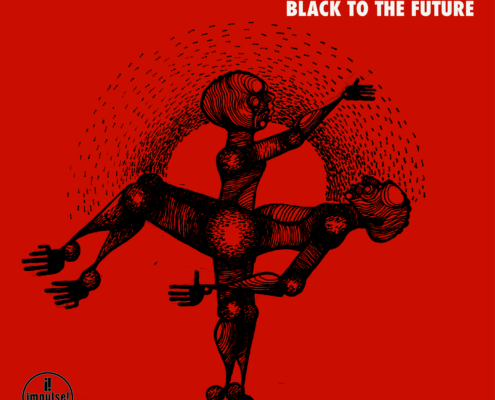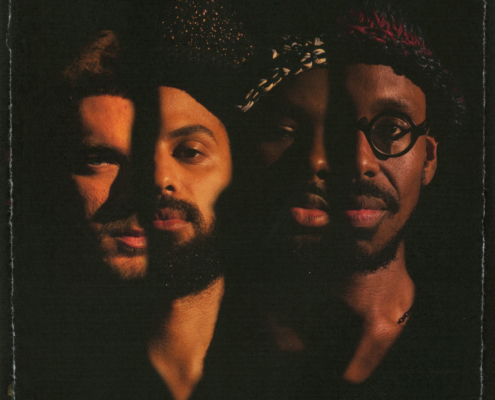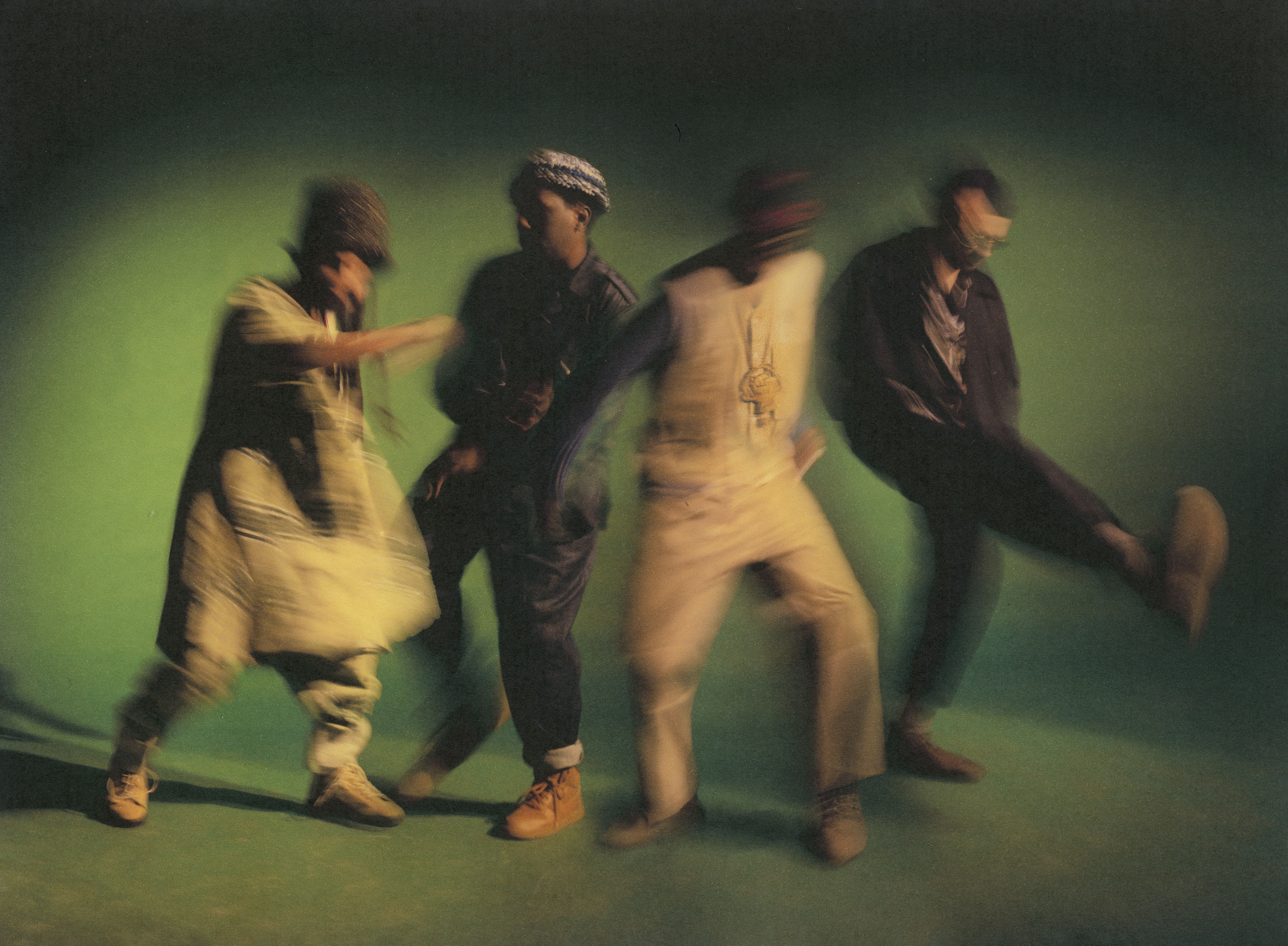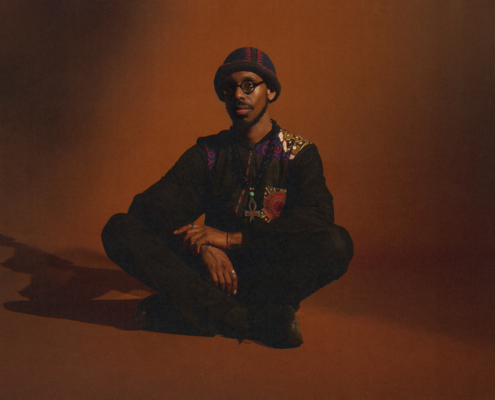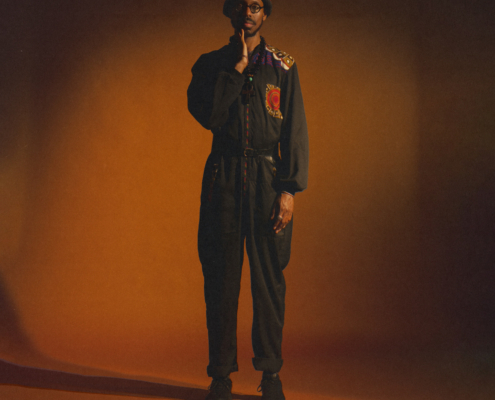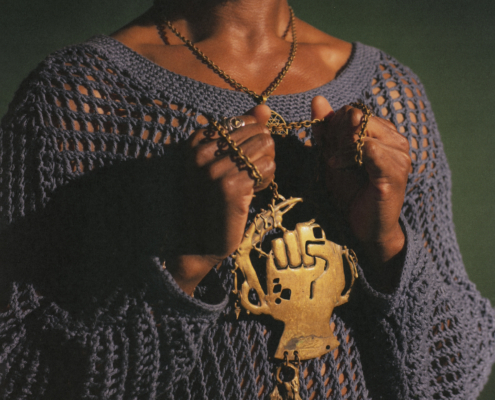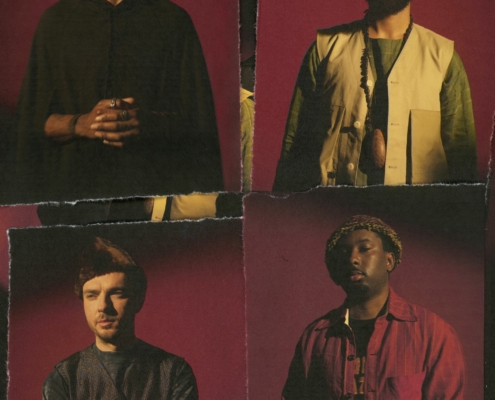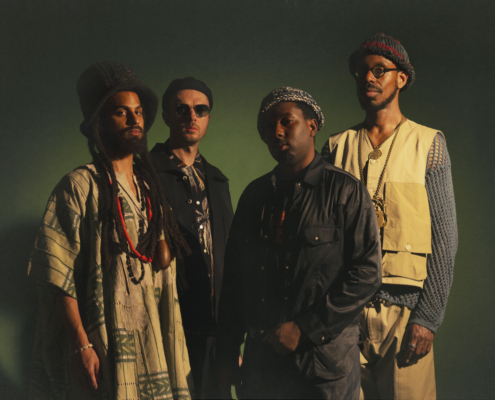Sons Of Kemet – Black To The Future
- Field Negus Joshua Idehen
- Pick Up Your Burning Cross Moor Mother & Angel Bat Dawid
- Think Of Home
- Hustle Kojey Radical
- For The Culture D Double E
- To Never Forget The Source
- In Remembrance Of Those Fallen
- Let The Circle Be Unbroken
- Envision Yourself Levitating
- Throughout The Madness, Stay Strong
- Black Joshua Idehen
Tenor Sax & Woodwinds: Shabaka Hutchings / Tuba & Conch: Theon Cross
Tenor Saxophone: Steve Williamson / Trumpet: Ife Ogunjobi
Drums: Tom Skinner / Drums: Eddie Hick
Produced & arranged by Shabaka Hutchings
Mit ihrem Impulse-Debüt “Your Queen Is A Reptile” erspielten sich Saxofonist, Klarinettist und Komponist Shabaka Hutchings und seine Sons of Kemet 2018 nicht nur in England die Rolle von Gallionsfiguren des Nu-Jazz.
Mit dem Nachfolgealbum „Black To The Future“ geht die Reise jetzt hin zu noch komplexeren, ausgefeilteren Songs und Beiträgen von spannenden Gästen wie Kojey Radical, Moor Mother, Angel Bat Dawid, Joshua Idehen und D Double E.
|
Statement by Shabaka Hutchings
Field negus pick up your burning cross think of home hustle for the culture to never forget the source In remembrance of those fallen Let the circle be unbroken Envision yourself levitating Throughout the madness, stay strong Black
Black to the future is a sonic poem for the invocation of power, remembrance and healing. It envisions our progression towards a future in which indigenous knowledge and wisdom is centred in the realisation of a harmonious balance between the human, natural and spiritual world. The outwards gaze of Joshua Idehen’s words on ‘Field negus’ and ‘Black’ bookend the album and express the rage, frustration and perception arising in the wake of George Floyd’s death and the subsequent BLM protests. The work then flows inwards from both directions meeting at the central (ideological) axis-point of the track ‘to never forget The Source’. The Source refers to the principles which govern traditional African cosmologies / ontological outlooks and symbolises the inner journey. It is the unifying factor that gives meaning both to looking backwards (in nuancing and continually adding depth of contextualisation and meaning to the past) and visioning forward (in speculating and striving to realise a better future for humanity).
Black to the future depicts a movement to redefine and reaffirm what it means to strive for black power. Power is seen as the lifeforce energy needed to build upon the conceptual frameworks of our ancestors so their wisdom might guide our intentions and focus. Music can be likened to a time travelling vessel whereby cultural value systems of the past are encoded within sound and projected / protected throughout ages. The track titles all combine to reflect a single poetic statement to which a depth of symbolic meaning can be intuited in combination with the music/sonic information. This meaning is not universal and the cultural context of the listener will shape their understanding, yet in the end, the overarching message remains the same – For humanity to progress we must consider what it means for Black to the Future. |
The last time Shabaka Hutchings released a record, it was March 13, 2020 – on the eve of the pandemic – with Shabaka & The Ancestors’ We Are Sent Here By History. The “momentous” (NPR Music) album centered around themes of confronting the destruction of humanity as we know it. The prescient theme of this record was not lost on those who heard it.
Shabaka Hutchings is consistently in tune with – if not in front of – the cultural themes swirling in our world: past, present and future. He unearths forgotten mythologies, unlocks sounds of the past, and presents a thesis for the future. That continues with Black To The Future, a politically poignant and musically rich album, which feels destined to be placed on the shelf next to Archie Shepp’s Attica Blues or John Coltrane’s Alabama.
Musically, Black To The Future is a bigger affair than previous Sons of Kemet records. The core group – Theon Cross (tuba), Edward Wakili-Hick (percussion), Tom Skinner (percussion) – is enhanced by guests such as Jazz warrior UK saxophonist Steve Williamson, Chicago bandleader/vocalist Angel Bat Dawid, American poet Moor Mother, legendary British Grime MC D Double E, British artist/rapper/spoken word musical artist Kojey Radical, and more. Shabaka Hutchings also adds complex layers of woodwind instrumentation throughout the record, which he did during lockdown.
This album begins and ends with powerful lyrical and musical statements of rage and frustration, expressed outwardly in the wake of George Floyd’s death and the subsequent BLM protests. The album flows inwards from the start and finish to deeper, inner journeys – looking to forgotten cosmologies and searching for new ways of existing.
The lead single “Hustle” is a propulsive, urgent song with the poetic, chanting lyrics of Kojey Radical. He speaks: “Why ain’t no one tell me peace of mind was pricey / I could dance with the devil but that’s unlikely / Might go broke but that’s unlike me / I was born from the mud with the hustle inside me.”
About the accompanying music video, Hutchings says: “The dancers represent the duality present within any struggle to transcend internal limitations. As the video progresses, we see that it’s only once the differing elements of the self are reconciled and act in unison that rebirth (symbolized by the immersion in water) can occur.”
For Black To The Future, Shabaka sequenced and named each track in a specific order so that the song titles reflect a single poetic statement to which a depth of symbolic meaning can be intuited in combination with the music/sonic information.
——————————————————————
60 Jahre IMULSE! Records
80 Jahre Blue Note liegt noch nicht lang zurück, da wird schon das nächste Jubiläum gefeiert. Dieses Jahr dürfen sich die Fans des innovativen und noch immer produktiven Impulse!-Labels auf Überraschungen freuen.
Seit sechzig Jahren steht Impulse! Records als Label für musikalische Integrität und bleibenden musikalischen Wert, hat viele klassische Aufnahmen hervorgebracht, die die politischen und kulturellen Veränderungen der Welt widerspiegeln. Obwohl das Label, 1961 als Teil von ABC Records gegründet, anfänglich auf alle damals bedeutenden Jazzstile setzte, konzentrierte es sich nach den großen Werken seines Künstlers John Coltrane vor allen Dingen auf Musik mit experimenteller und spiritueller Dimension. Bahnbrechende Alben von Max Roach, Alice Coltrane, Charles Mingus, Albert Ayler, Sun Ra oder Pharoah Sanders sind die Werke, die bis heute das Bild von Impulse! Records prägen.
Ein wesentlicher Teil der Identität des Labels beruht auch auf seinen ins Auge stechenden Logos und Albumcovers. Die Farben Orange und Schwarz werden für immer optisches Signet des Labels bleiben, das noch immer ein Zuhause für kreative und mutige Musiker aus der ganzen Welt ist.
Neben neuen Alben von Sons of Kemet und anderen aktuellen Künstlern wird Impulse! zu seinem Geburtstag auch einen Blick auf seinen noch immer relevanten Katalog werfen. Den Anfang macht ebenfalls im Mai eine Zusammenstellung exemplarischer Impulse!-Aufnahmen als Doppel-CD und
4-LP-Set unter dem Titel “Impulse Records: Music, Message and the Moment”.
Radio-Kontakte
Media Promotion (Promotion Süd, West & Nord)
Rosita Falke
info@rosita-falke.de, Tel: 040 – 413 545 05
Musicforce
Anja Sziedat (Promotion Berlin / Ost)
anja.musicforce@gmail.com, Tel: 030 – 419 59 615, Mobil: 0177 – 611 5675
Impulse / Universal Music
CD 06024 3562232 / LP 06024 3562166
VÖ: 14.05.2021

